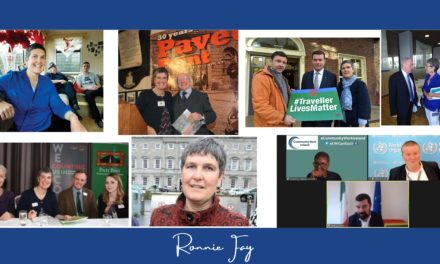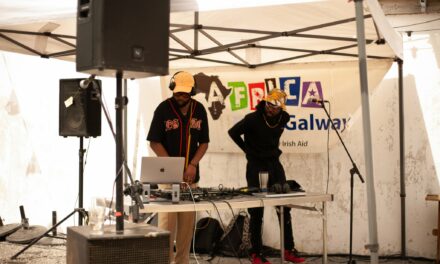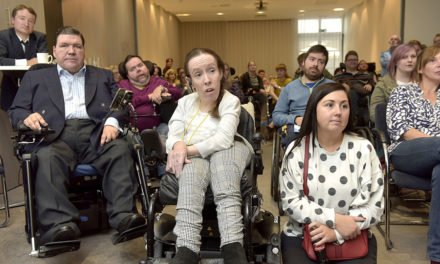As we enter 2019, Kirsty Tobin outlines #MeToo, the Silence Breakers, #TimesUp and Donald Trump’s election – just some of the reasons, in short, why Changing Irelandis prepared to declare 2018 the Year of the Woman.
It wouldn’t be much of a stretch to state with certainty that 2018 is the Year of the Woman. We all should have seen it coming.
In December 2017, Time magazine revealed ‘The Silence Breakers’, the women (and men, but mostly women) who came forward to decry the endemic sexual harassment taking place in Hollywood and – by dint of their very public conversations – that faced by ordinary women. They became Time’s Person of the Year, and that set the tone.
2018 has been the year of #MeToo (although it first came to prominence in 2017, and was first used as a hashtag in 2006*) and #TimesUp (which is exactly as old as 2018 itself, officially launching on 1 January 2018). This has been the year when women took strength from each other and collectively said, ‘No more’.
A number of high-profile cases in Hollywood and in business, and the presence in the White House of President Donald J Trump, have inspired women to challenge the gender norms of being shrinking violets in conference rooms and good sports in public.
Women are now more compelled to speak out against the micro-aggressions that were once merely accepted as a matter of course. Women are starting to push back, en masse, against the inequalities and unfairness that we have faced for years, in everything from pay gaps and employment opportunities, to the support (or lack thereof) young girls face when choosing their path in life, to the very way we use language.
We are starting to fight for ourselves; to say, “There is no one way a woman should be, other than equal to a man”.
All of this has been cemented here in Ireland, where 2018 is the anniversary of a number of important turning points that show us the remarkable progress women have made and can continue to make.
This year is the 100th anniversary of Irish women’s suffrage through the Representation of the People Act 1918 (albeit with a few caveats), and the 60th anniversary of a landmark Dáil Debate and legislative change that opened the doors of An Garda Siochána to women.
It is a year that opened with women taking to the streets of Dublin and Galway for a Women’s March, in solidarity with their ‘sisters’ in US cities who marched to protest Trump. Marches in favour of (and against) repealing the Eighth Amendment to the Constitution followed, as women continued to demand to be heard.
It is, of course, the year that the Irish people voted overwhelmingly to overturn the country’s arguably draconian ban on abortion. Yet, it was still not enough to make the seventh annual March for Choice unnecessary. As we wait – nearly six months on – for our government to finally pass legislation that will usher in safe and legal abortion services in Ireland, women still feel the need to remind the world that we’re not going away and that, while the fight may be won, the war is not over.
In honour, then, of our Year of the Woman, we dedicate this week – Changing Ireland’s Women’s Week – to the women of Ireland. We are focusing here on the challenges women face in today’s society, and highlighting some of the positive changes that, it is hoped, will make their lives (and our futures) better.




